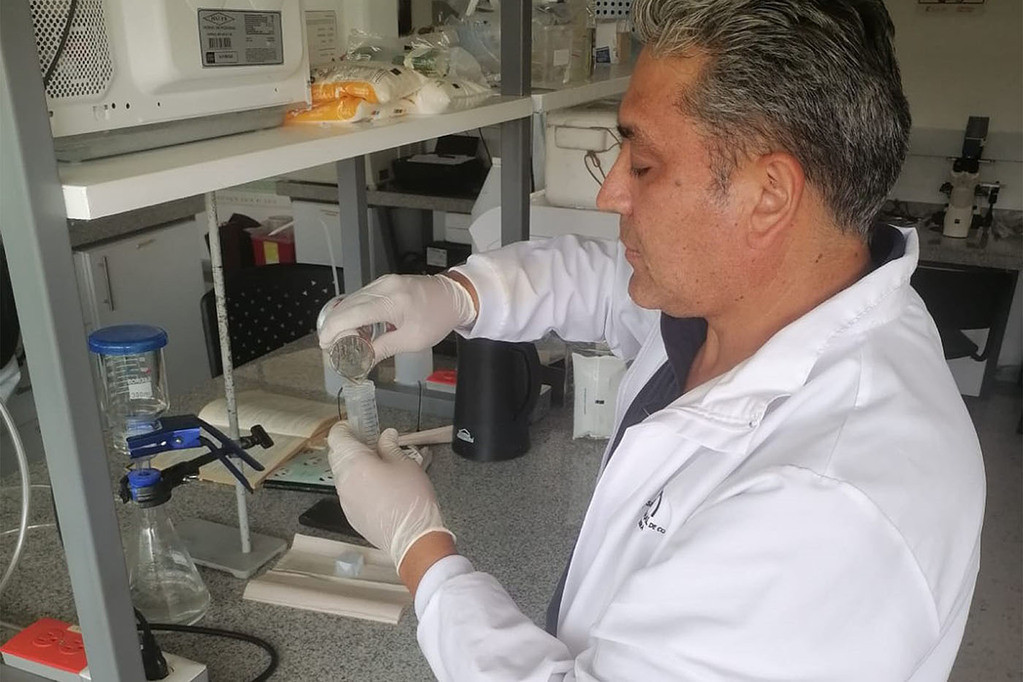The mixture of garlic, turmeric, cinnamon and oregano could be an alternative to control avian coccidiosis. This research responds to both consumer demand for foods free of chemical residues and the One Health approach of the World Health Organization (WHO), which defines antimicrobial resistance (AMR) as one of the top 10 threats to public health.
Avian coccidiosis is a gastrointestinal disease caused by the parasite Eimeria spp.“one of the main pathologies of the poultry industry causing losses estimated at 2.3 billion dollars annually in the world“, since it directly affects the feed conversion in the production of chicken meat.
Although this disease has traditionally been controlled worldwide with anticoccidial medications and vaccination programs, “the continued use of these drugs has generated resistance and the presence of chemical residues in the tissues and organs of treated animalswith direct implications for public health”.
In Colombia, research aimed at studying natural alternatives for its control they have not had scientific rigorwhich decreases the probability that producers apply them. However, the problem becomes relevant when talking about an approximate monthly production of 80 million chickens, so this disease “represents a constant threat to the profitability and sustainability of the sector, since the current per capita consumption in the country is around 32 kilograms per month.”
Additionally, changing international regulations and standards – driven by environmental and public health concerns – have led the Colombian poultry industry to rethink its practices. In this context, the research of the zootechnical veterinary doctor John Fabio López Gonzálezstudent of the Master of Science – Pharmacology at the National University of Colombia (UNAL), is a key option towards the adoption of more sustainable methods.
FROM TRADITIONAL MEDICINES TO NATURAL MIXTURE
The study proposes replacing traditional medicines with a mixture of garlic, turmeric, cinnamon and oreganoplant phytobiotics that become a promising alternative to control avian coccidiosis. “These plants contain active ingredients that have been shown to be effective in previous studies, when added separately to broiler chicken feed.”
To carry out the research, the chickens were infected with the disease and underwent an exhaustive zootechnical analysis in which parameters such as weight, consumption, feed conversion (which measures the efficiency of the feed in the weight of the animal), European efficiency factor are evaluated. and productivity index (PI).
The experiment was carried out at the Mario González Arana Farm at the UNAL Palmira Campus, where 105 chickens were given 5 different treatments, administered in groups of 7 individuals, from the first day of life until their maturity, each one designed to evaluate the efficacy of the mixture during the typical life cycle of 35 days, which allowed a comprehensive evaluation of the effectiveness against the disease. Analysis of the collected samples includes evaluation of intestinal integrity, antioxidant enzymes, and histopathology.
“The coccidia was obtained from field strains and sporulated, or reproduced, in the Laboratory of Parasitology, Immunology and Infectious Diseases of the UNAL Palmira Campus. The mixture is made up of 200 grams of garlic, 100 grams of turmeric, 100 grams of cinnamon and 200 grams of oregano, thus making up 1 kilogram of this promising alternative to conventional medications,” explains the researcher.
Although the final results are currently in the process of analysis and statistical review, “preliminary data suggest a notable similarity in the conversion between traditional treatments and the mixture of phytobiotics“.
The complete validation of these results will be carried out over the next year, for which the researcher hopes that they will not only serve as a basis for future studies, but also contribute to improving conventional practices in the poultry industry. “The expectation is that phytobiotics will consolidate as a viable and safe option,” he comments.
The researcher Javier Antonio Benavides Montañoleader of the research group in Parasitology, Immunology and Infectious Diseases and co-director of the thesis, emphasizes that “it is crucial to highlight that Control of avian coccidiosis generally involves a combination of strategies which may include good management practices, hygiene, prevention programs and, in some cases, the administration of vaccines. The choice of strategy will depend on factors such as the type of poultry production and the prevalence of the disease in a specific region.”
The project is directed by the researcher María Constanza Lozano Álvarezfrom the Department of Pharmacy of the Faculty of Sciences of the UNAL Bogotá Campus.
